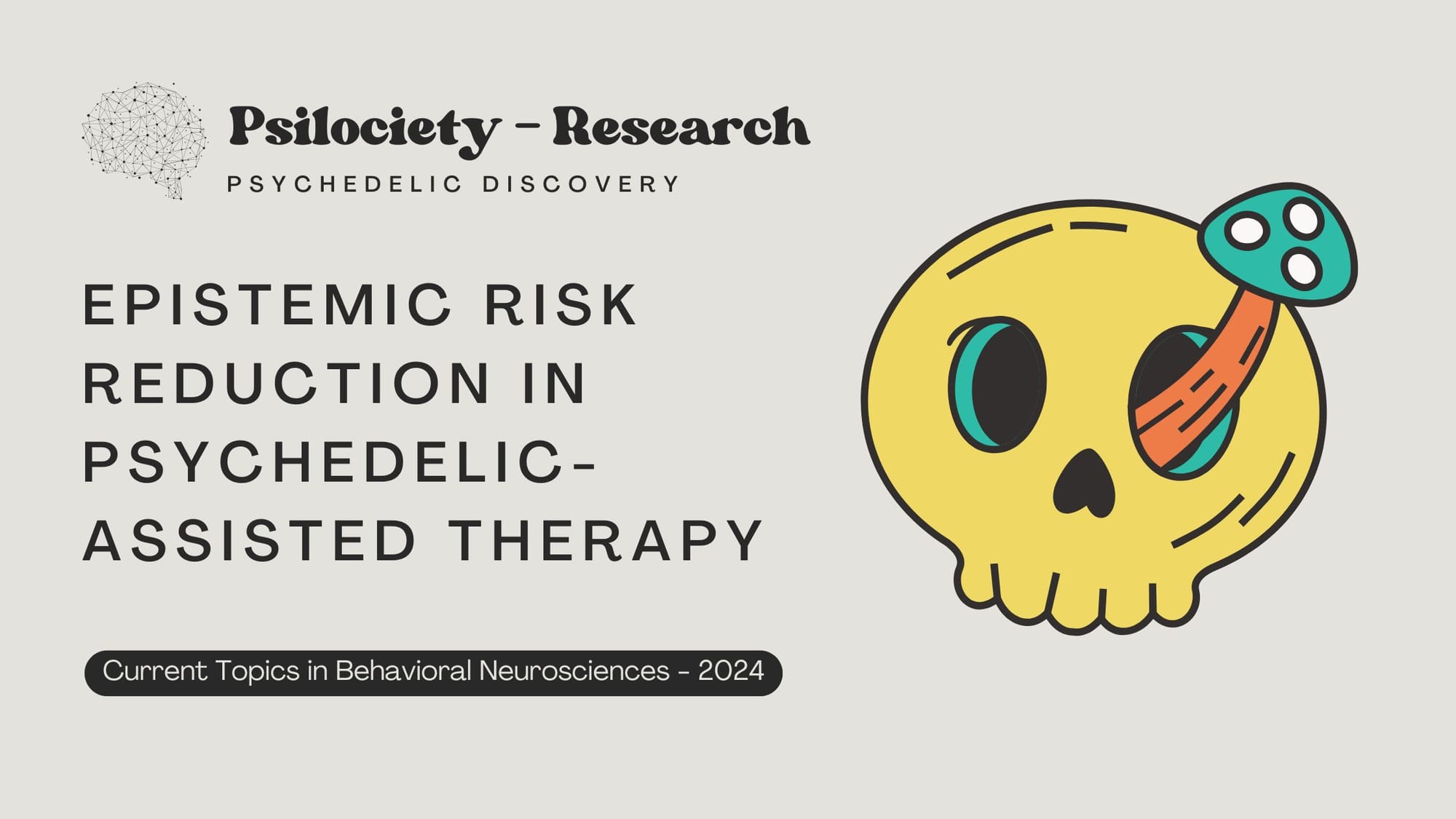Epistemic Risk Reduction in Psychedelic-Assisted Therapy
This study examines the epistemic risks in psychedelic-assisted therapy and proposes strategies to help patients integrate experiences without undue influence.

Title & Introduction
- Paper Title: Epistemic Risk Reduction in Psychedelic-Assisted Therapy
- Published In: Current Topics in Behavioral Neurosciences
- Publish date: November 2, 2024
- Authors: Chiara Caporuscio, Sascha Benjamin Fink
- Objective: To explore the unique epistemic risks associated with psychedelic-assisted therapy (PAT) and propose strategies for mitigating them while preserving patient autonomy.
- Importance: Addresses the challenge of balancing transformative psychedelic experiences with the need to prevent delusional or misleading belief formation in therapy.
Summary & Takeaways
Key Takeaway: Psychedelic-assisted therapy presents unique epistemic risks, including rapid belief changes and the potential for therapist influence over patient worldviews. Strategies for mitigating these risks should focus on patient autonomy and critical reflection.
Practical Application:
Therapists should adopt structured epistemic strategies to ensure patients critically integrate psychedelic experiences without undue influence from the therapist's personal beliefs.
Key Background Information
- Context: Psychedelic experiences can induce radical belief changes that may be beneficial (e.g., insights into self-identity) or problematic (e.g., uncritical acceptance of hallucinatory content as truth).
- Hypothesis: The epistemic risks in psychedelic therapy can be reduced by incorporating structured approaches that help patients critically assess their experiences while maintaining therapeutic benefits.
Methodology
- Study Design: Theoretical and philosophical analysis.
- Participants: Not applicable.
- Intervention/Exposure: Examination of epistemic risks and proposed mitigation strategies in PAT.
- Controls: Not applicable.
- Duration: Not specified.
Key Findings
Primary Outcomes:
- Psychedelic-assisted therapy introduces risks of drastic belief change, potentially leading to confusion or disorientation.
- The altered state in PAT makes patients more suggestible, increasing the risk of undue therapist influence.
- Certain strategies can help mitigate these epistemic risks, including:
- Epistemic Virtue Strategy: Encouraging skepticism and critical reflection.
- Metaphysical Matrix Strategy: Helping patients contextualize their experiences within various philosophical perspectives.
- Psychedelic Apprenticeship Strategy: Gradual integration of insights over time.
- Self-Shaping Strategy: Supporting patients in shaping their own beliefs without external imposition.
Secondary Outcomes:
- Patients should be guided to engage with their experiences in a way that fosters personal insight while avoiding uncritical acceptance of psychedelic-induced perceptions as absolute truths.
- The role of therapists should be one of facilitation rather than authority over meaning-making.
Interpretation & Implications
- Conclusion: Psychedelic therapy must account for epistemic risks to prevent potential belief distortions while preserving its therapeutic potential.
- Implications: Training programs for psychedelic therapists should incorporate epistemic risk mitigation strategies.
- Limitations: The paper is largely theoretical and does not include empirical testing of the proposed strategies.
Researchers & Publication
- Researchers: Chiara Caporuscio, Sascha Benjamin Fink
- Publication Name: Current Topics in Behavioral Neurosciences
- Study URL: https://doi.org/10.1007/7854_2024_531

